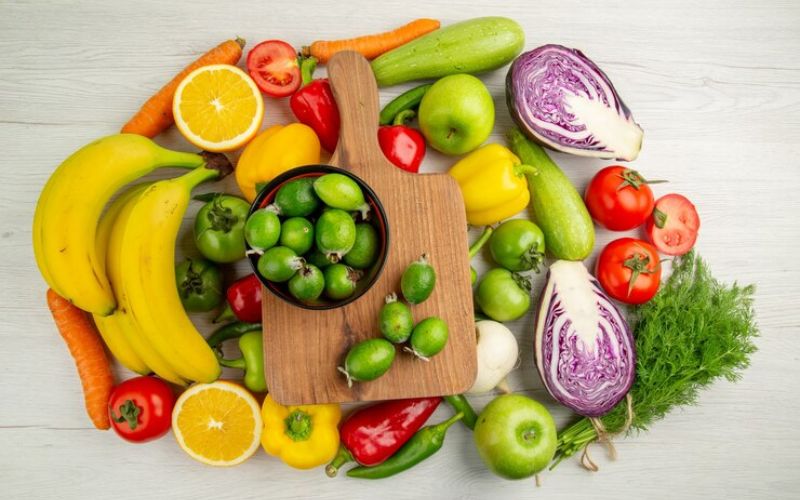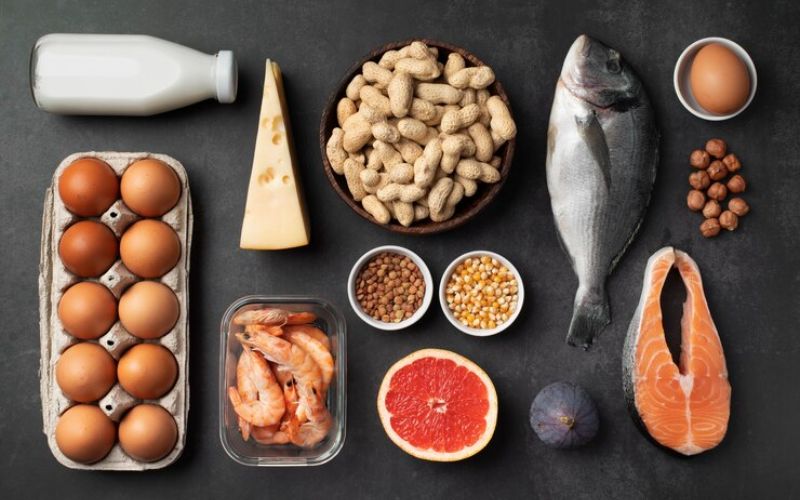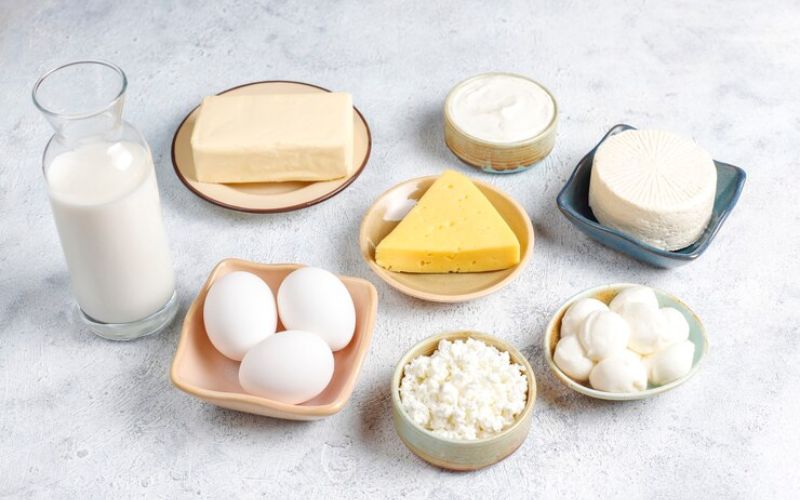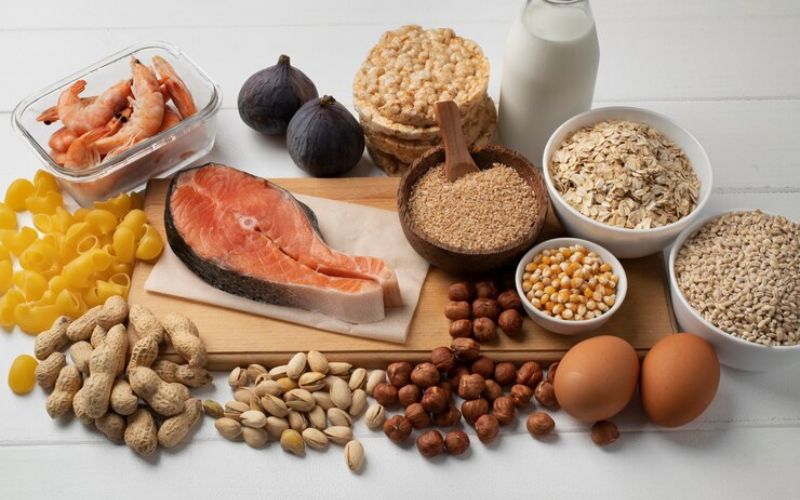Last Updated on December 6, 2023 by Muhammad Sohaib
Pregnancy Food Must Haves
Pregnancy is a beautiful and transformative time in a woman’s life, and proper nutrition plays a crucial role in supporting the health and well-being of both the mother and the developing baby.
Nourishing your body with the right foods can ensure optimal fetal development, support maternal health, and minimize the risk of complications during pregnancy.
In this comprehensive guide, we will explore the essential pregnancy food must haves that every expectant mother should incorporate into her diet for a healthy and balanced pregnancy.
Before we dive into the specific foods, it’s important to understand the significance of proper nutrition during pregnancy. The food you eat serves as the building blocks for your baby’s growth and development.
A well-balanced diet not only provides vital nutrients but also helps regulate hormonal, promotes healthy weight gain, and reduces the risk of gestational diabetes and other pregnancy complications.
When it comes to selecting foods during pregnancy, it’s crucial to make informed choices. Some foods may pose risks due to potential contamination or adverse effects on the developing fetus.
It’s essential to be aware of safety precautions and follow guidelines provided by healthcare professionals to ensure a healthy pregnancy journey.
Incorporating Nutrient-Dense Foods into Your Pregnancy Diet
Whole Grains: Fueling Your Body with Complex Carbohydrates

Whole grains are an excellent source of complex carbohydrates, which provide a steady release of energy and help maintain stable blood sugar levels. They are also rich in fiber, vitamins, and minerals necessary for a healthy pregnancy.
When selecting whole grains, opt for options such as brown rice, quinoa, whole wheat, oats, and barley. These grains retain the bran and germ, ensuring that you benefit from the maximum nutrient content.
Incorporating whole grains into your meals and snacks is easy and delicious. Start your day with a hearty bowl of oatmeal topped with fresh fruits and nuts or enjoy a whole wheat sandwich filled with lean protein and vegetables for lunch.
Swap white bread or refined grains with whole grain options to make your meals more nutritious and satisfying.
Fresh Fruits and Vegetables: A Rainbow of Nutrients

Fresh fruits and vegetables are a powerhouse of essential vitamins, minerals, and antioxidants that support fetal growth and development. They provide an array of nutrients like folate, vitamin C, potassium, and fiber that are crucial for a healthy pregnancy.
To ensure you get a variety of nutrients, aim to include a colorful assortment of fruits and vegetables in your diet. Select seasonal and locally-sourced produce whenever possible, as they tend to be fresher and more nutrient-dense.
Experiment with different cooking methods like roasting, steaming, or stir-frying to retain the maximum nutritional value of these vibrant plant-based foods.
Lean Proteins: Building Blocks for You and Your Baby

Protein is essential for the growth and repair of tissues and plays a vital role in fetal development. During pregnancy, it’s important to consume enough high-quality protein to support the formation of your baby’s organs, muscles, and cells.
Lean protein sources such as poultry, fish, eggs, tofu, legumes, and dairy products are excellent choices for pregnant women.
These foods provide essential amino acids and other nutrients necessary for both you and your baby’s optimal health. Incorporate protein into each meal by adding grilled chicken to salads or enjoying a salmon fillet with steamed vegetables.
Remember to cook meat and eggs thoroughly to eliminate any potential risks of foodborne illnesses.
Dairy Products: Promoting Strong Bones and Healthy Growth

Dairy products are a rich source of calcium, which is essential for your baby’s bone development, as well as maintaining strong teeth and healthy blood clotting.
Additionally, dairy products provide protein, vitamin D, and other essential nutrients that support the overall growth of your baby.
Choose low-fat or non-fat varieties of dairy products such as milk, yogurt, and cheese to minimize saturated fats. If you’re lactose-intolerant, there are lactose-free options available that still provide the necessary nutrients.
Incorporate dairy products into your diet by enjoying a cup of Greek yogurt as a snack or adding a sprinkle of cheese to your favorite dishes.
Healthy Fats: Nourishing Your Body and Baby’s Development

During pregnancy, it’s important to include sources of healthy fats in your diet. Healthy fats, such as omega-3 fatty acids, are crucial for your baby’s brain development and help regulate hormonal balance within your body.
Incorporate foods rich in healthy fats, such as avocados, nuts, seeds, and fatty fish like salmon or mackerel, into your diet. These foods provide essential fatty acids that support both you and your baby’s health.
Enjoy a handful of almonds as a snack or top your salad with a slice of avocado to boost your intake of healthy fats.
Managing Pregnancy-Related Discomforts with Special Food Choices
While pregnancy is a joyous journey, it can also bring along various discomforts. Nausea, heartburn, indigestion, constipation, and hemorrhoids are common issues that many pregnant women face.
Fortunately, making specific food choices can help alleviate these discomforts and ensure proper nutrition.
Nausea and Morning Sickness: Foods to Ease Symptoms
Nausea and morning sickness are common during the first trimester of pregnancy. To help ease these symptoms, opt for light, bland foods that are easy on the stomach.
Crackers, ginger tea, peppermint tea, or small frequent meals can provide relief. Avoid spicy or greasy foods that may irritate your stomach further.
Heartburn and Indigestion: Foods to Alleviate Discomfort
Heartburn and indigestion can be bothersome during pregnancy due to hormonal changes and the growing uterus putting pressure on the abdomen.
To manage these symptoms, consume smaller, frequent meals, and avoid rich, spicy, or fried foods. Opt for whole grains, lean proteins, and cooked vegetables that are easier to digest.
Constipation and Hemorrhoids: High-Fiber Pregnancy Foods
Constipation and hemorrhoids are common issues during pregnancy due to hormonal changes and the pressure of the growing uterus on the digestive system.
Include fiber-rich foods like whole grains, fruits, vegetables, and legumes in your diet to promote healthy digestion.
Stay hydrated by drinking plenty of water and incorporating regular exercise to alleviate constipation and reduce the risk of hemorrhoids.
Essential Supplements to Support Pregnancy Nutrition
While a well-balanced diet can provide most of the nutrients required during pregnancy, some may require additional supplementation to ensure optimal nutrition.
Consult with your healthcare provider to determine which supplements are necessary for you.
Prenatal Vitamins: Ensuring Adequate Nutrient Intake
Prenatal vitamins are specifically formulated to support the higher nutritional needs of pregnant women. These supplements usually contain essential vitamins and minerals like folate, iron, calcium, and vitamin D.
Taking prenatal vitamins regularly can help fill any nutritional gaps and support your baby’s growth and development.
Omega-3 Fatty Acids: Supporting Baby’s Brain Development

Omega-3 fatty acids, particularly DHA (docosahexaenoic acid), play a vital role in promoting your baby’s brain development.
While fatty fish like salmon is a natural source of omega-3s, it’s recommended to consult with your healthcare provider regarding safe dosage and alternative options, such as fish oil supplements or vegetarian sources like flaxseeds or chia seeds.
Iron and Calcium: Vital Micronutrients for Pregnancy
Iron and calcium are crucial micronutrients during pregnancy. Iron helps in the production of red blood cells and prevents anemia, while calcium supports fetal bone development. Incorporate iron-rich foods like lean meats, legumes, and dark leafy greens in your diet.
Pairing iron-rich foods with vitamin C-rich foods can enhance iron absorption. For calcium, include dairy products, tofu, fortified plant-based milks, and leafy greens in your diet.
Speak with your healthcare provider to ensure you’re meeting your iron and calcium needs and if supplementation is necessary.
FAQs
Can I consume caffeine during pregnancy?
While moderate caffeine consumption is generally considered safe during pregnancy, it’s recommended to limit your intake to 200 milligrams per day. Opt for decaffeinated beverages or herbal teas as an alternative.
Are raw or unpasteurized foods safe during pregnancy?
It’s best to avoid consuming raw or unpasteurized foods during pregnancy, as they may pose a risk of foodborne illnesses. Ensure proper cooking and pasteurization of foods to minimize potential health risks.
How can I alleviate pregnancy cravings while still maintaining a healthy diet?
It’s normal to experience cravings during pregnancy. To strike a balance, indulge in your cravings in moderation, while ensuring you meet your nutritional needs through a well-rounded diet. Opt for healthier alternatives or smaller portions to satisfy your cravings.
Can I follow a vegetarian or vegan diet during pregnancy?
Yes, it is possible to follow a vegetarian or vegan diet during pregnancy, but careful planning is required to ensure you’re getting all the necessary nutrients. Consult with a registered dietitian or healthcare provider to create a well-planned diet that meets your nutritional needs.
What foods should I avoid during pregnancy due to potential risks?
Certain foods should be avoided during pregnancy to minimize the risk of foodborne illnesses or harm to the baby.
Raw or undercooked meats, fish high in mercury, unpasteurized dairy products, deli meats, and raw or runny eggs are among the foods that should be avoided.
Consult with your healthcare provider for a comprehensive list of foods to avoid during pregnancy.
Conclusion
Ensuring a healthy and balanced diet during pregnancy is of utmost importance for the well-being of both the mother and the developing baby.
By incorporating nutrient-dense foods, managing pregnancy-related discomforts, and supplementing when necessary, you can provide your body with the essential nourishment it needs to support a healthy pregnancy.
Remember to consult with your healthcare provider for personalized guidance and recommendations throughout your pregnancy journey.






